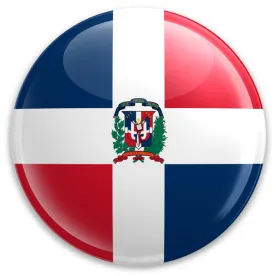With presidential and congressional elections scheduled to take place on July 5, 2020,[1] the President of the Dominican Republic, Danilo Medina Sánchez, announced last Sunday May 17, 2020, a set of measures for a staged reopening of the Dominican economy. This raises the question of what happens if these reopening measures result in drastic spikes of new COVID-19 cases and the elections are therefore not held on July 5, 2020.
There is a lot riding on this question as any postponement of the elections beyond the August 16 constitutional end-date of the terms of the President, Vice President and 222 legislators could result in a political, institutional and constitutional crisis. This in turn could deal a serious blow to the country’s democratic system, rule of law, and business and investment climate.
The Dominican legal system does not expressly address a situation where presidential and congressional elections cannot be held before the end of respective terms. For general guidance, one may look to basic constitutional principles and value, however, this may imply serious inconveniences. Two lines of thought of how the situation should be handled, based on interpretations of the existing Dominican Constitutional provisions, are currently being publicly debated. The first suggests the President and Vice-President should step down from office on August 16, 2020, because the Constitution provides such date as the term of their mandates. Pursuant to this line of thought, the President of the Supreme Court of Justice would provisionally act as President of the country according to the succession rules set forth by articles 126 and 129 of the Dominican Constitution or a Governance Board would temporarily manage the government until elections could be held. The second line of thought suggests that the current authorities should remain in office until their replacements are elected, based on the principle of continuity of government (a principle deriving from an interpretation of article 275 of the Dominican Constitution) and on the democratic principle considering that those authorities where duly elected. Both of these approaches, however, would require approval and implementation of certain measures by the National Congress (Senators and Deputies), the tenure of most members of which also will expire on August 16, 2020.
Another legal option under debate is an amendment to the Dominican constitution to address specifically the issue. A major hurdle to this option, however, is that the Constitution expressly prohibits any amendments being made during a state of exception[2]. Nevertheless, several proposals have been suggested, such as: (i) the modification to the presidential rules of succession to expressly include the possibility of the current authorities remaining in office until their replacements are elected; (ii) the inclusion of transitional language extending, on an exceptional basis and in light of circumstances, the current Executive and Congressional terms;[3] (iii) the inclusion of language that contemplates the possibility of some members of the National Congress assuming temporary executive functions until the elections can be held, and (iv) the inclusion of a provision holding that the Electoral Authority assumes the Executive Power until elections can be held.
These options seek to limit political influence in case elections cannot be held by August 16, 2020, and to ensure adequate governance and economic stability. The Dominican political panorama should be more clear on July 5, 2020, assuming elections are held, which are expected to conclude in a peaceful transition of power.
***
[1] The Constitution of the Dominican Republic stipulates that presidential and congressional elections shall be held every four years on the third Sunday of May. This year, however, on April 13, 2020, the Electoral Authority passed a resolution rescheduling for July 5, 2020 these elections due to the COVID-19 coronavirus pandemic.
[2] Article 271 of the Constitution establishes that “Constitutional reform may not be made in the case of the effect of one of the states of exception given in article 262”.
[3] Article 274 of the Dominican Constitution.




 />i
/>i

